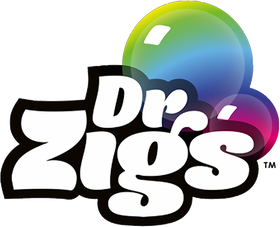Coronavirus-COVID19
Coronavirus - everything you need to know about protecting yourself.
What is Coronavirus?
A coronavirus is a type of virus, which as a group are common across the world. Generally, coronavirus can cause more severe symptoms in people with weakened immune systems, older people, and those with long-term conditions like diabetes, cancer and chronic lung disease.
Novel coronavirus (COVID-19) is a new strain of coronavirus that can affect the lungs and airways, originating from Wuhan, China. Coronaviruses are common across the world and typical symptoms include:
- A cough
- A high temperature
- Shortness of breath
As this strain of coronavirus is new, health professionals cannot yet be clear on how it is transferred from person to person, however, similar viruses are spread through cough droplets (NHS, 2020).
It may be possible that a person can get COVID-19 by touching a surface or object that has the virus on it and then touching their own mouth, nose, or possibly their eyes, but this is not thought to be the main way the virus spreads.
Whilst the risk to individuals in the UK is still classed as low, COVID-19 coronavirus is more of a risk to people with weakened immune systems, older people, and those with conditions such as diabetes, cancer and chronic lung disease (GOV.UK, 2020).
Whilst we are unable to test our mix on COVID-19 coronavirus until the strain is released by health authorities. We do know that the COVID-19 virus has an ‘envelope’ or ‘sleeve’ around each virus, suggesting it will be sensitive to disinfectants. So, although we don’t have data on this particular virus, we know that our bubble mix kills 99.9% of similar ‘enveloped’ viruses within the standard 5 minutes contact time.
Avoid catching or spreading germs
Whilst there is currently no vaccine to prevent against coronavirus, there are certain things you can do as you go about your day to day life to stop germs such as coronavirus from spreading (NHS, 2020).
- When you feel a cough or sneeze coming along, make sure to cover your mouth with a tissue or cough/sneeze into your elbow, particularly if in a public place.
- Don’t leave used tissues lying around! Put them into a bin as soon as you can.
- Wash your hands regularly and thoroughly with soap and water.
- Carry hand sanitiser and use regularly when on the go.
- If you are feeling unwell, avoid public spaces such as work, schools and public transport.
- Try not to come into close contact with anyone who is showing symptoms of respiratory illness.
- Avoid touching the eyes, nose and mouth as much as possible.
If you are feeling unwell or have been in contact with anyone who has recently visited China or surrounding countries, the NHS have advised that you do not contact your GP surgery or hospital, instead, please stay indoors and call NHS 111.
For more information, you can visit GOV.UK, NHS or World Health Organisation.
Can my pet catch coronavirus?
There is currently no evidence which suggests that pets including dogs and cats can be infected with COVID-19 (WHO, 2020). However, it is always a good idea to wash your hands after coming into contact with pets and other animals as some bacteria and viruses can spread from animals to humans.
